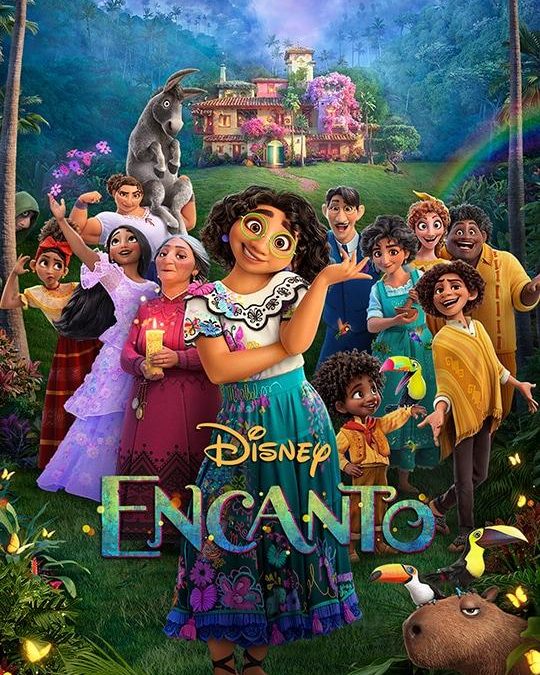I am an adult who loves children’s movies. Why do I love them? Well, apart from the fact that they are bright, colorful, and attention grabbing, I often find that children’s movies have deeper and more meaningful stories that can be pulled out of them. Trolls as a metaphor about consumerism and depression. Trolls World Tour about anti-racism. Frozenis about what can happen when emotions are ignored. I could go on all day about the many children’s movies I love and the deeper stories they contain. So, when I saw Encanto, I knew I wanted to point out just a taste of it’s bigger lessons.
Hopefully by this point everyone has seen Encanto, but if you haven’t, go watch it and come back to this article. Encanto is an animated film which centers on Mirabel Madrigal, a young woman in the Madrigal family and the only one who does not have magical powers. The backstory is that Abuela Alma and her husband Pedro fled their village due to violence and Pedro sacrificed himself to keep Abuela Alma and their three children (Pepa, Bruno, and Julieta) safe. Pedro’s sacrifice created a magic candle and a protected village for Abuela Alma and those who fled. The candle then gives Abuela Alma a magical house and each of Alma’s children (and their children) a gift, such as talking to animals, super strength, healing through food, super hearing, growing plants, etc. The main conflict of the story comes when Mirabel notices the magic begins to fade. Eventually, the family comes together after losing their magic and realizes that having one another is the real gift, not magic.
Encanto is filled with lessons, but I want to focus on two lessons that it teaches us about trauma and leave the other lessons for another day.
Number 1: Encanto teaches us that trauma does not just affect those who experienced it. Trauma can be generational and passed on. There was so much trauma experience by Abuela Alma and her triplets at the beginning of the story: they had to flee their village and Pedro was murdered. We can see through the movie that Pedro’s death and having to flee not only affected Abuela Alma but also affected her children and grandchildren. Even though Pepa, Bruno, and Julieta were too young to remember the trauma and the grandchildren weren’t born for it, they were all affected by it. Everyone in the family Madrigal knows the story of how they got their miracle which is their family’s trauma story. In response to losing Pedro and their previous home, great importance is placed on the magic candle and the gift, not only by Abuela Alma but by the entire family. So despite Maribel and her sisters not having witnessed or experienced the original trauma, they each work extremely hard to protect their “miracle” or the thing that came out of that trauma. In addition to those initial trauma’s there is also the trauma of Maribel not receiving a gift after everyone else in her extended family did and the humiliation she goes through in front of the entire village as a result of not getting a gift.
Number 2: Not everyone responds to trauma in the same way. We see that after the trauma, Abuela Alma works extremely hard to continue protecting her family and village. She still thinks of the event and Pedro often, and keeps the candle in her bedroom window. Luisa copes by taking on everyone’s problems. She is physically the strongest and extends that to also being emotionally strong. In her song “Surface Pressure” we hear Luisa’s experience of trying to hold and fix the entire family and village’s problems and what a strain it puts on her. For Isabella, she copes with things by doing whatever she is told and presenting a perfect exterior. We learn through her song “What Else Can I do” that Isabella has much more to her than her perfect exterior and pretty flowers. Isabella longs for a more authentic life where she does not have to act perfect but can be herself. Pepa’s mood controls the weather and as a result, everyone wants her to stay happy or emotionless at all times so that there is not bad weather and Pepa consistently tries to live up to this. When Bruno discovers that Maribel didn’t get a gift and the fate of the family rests on her, he runs away to protect her. Everyone in this family has been affected by various traumas and everyone reacts in different ways.
Trauma can be scary and hard to talk about, and we might not even know that it is affecting us. But, as the movie shows, there is absolutely hope for change and healing. If you want to work on your trauma, generational or personal, therapy can be a great place to start!

